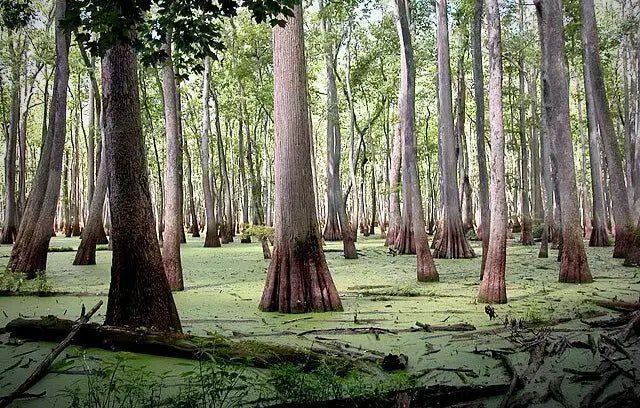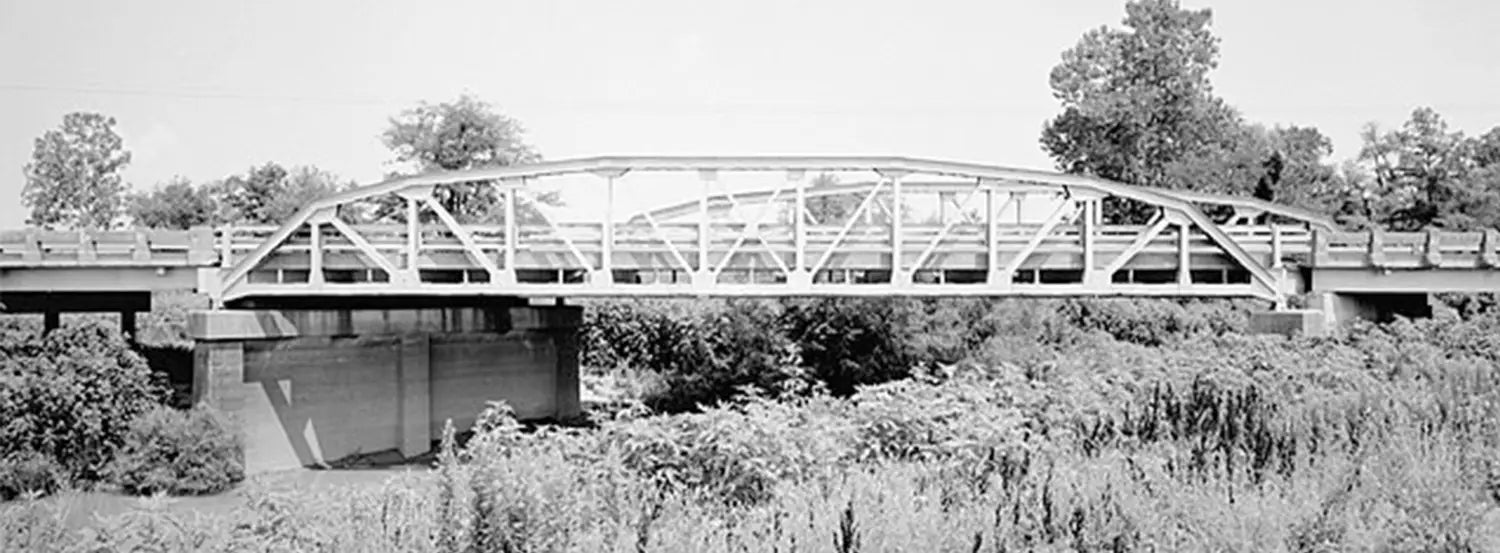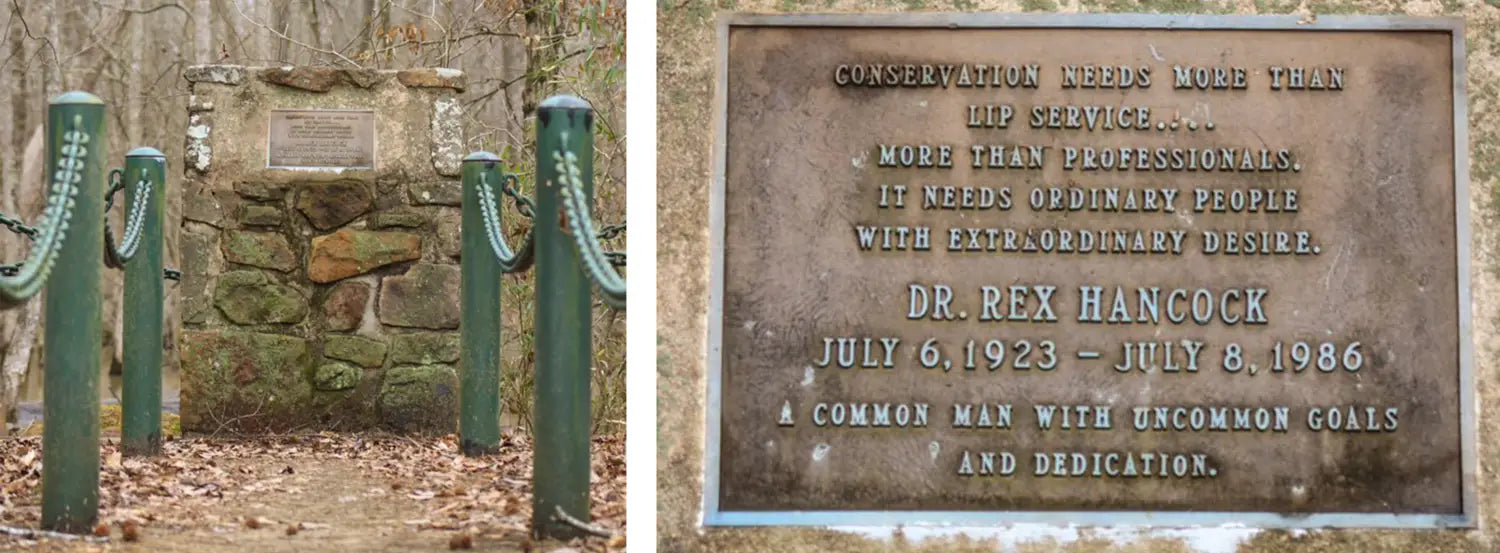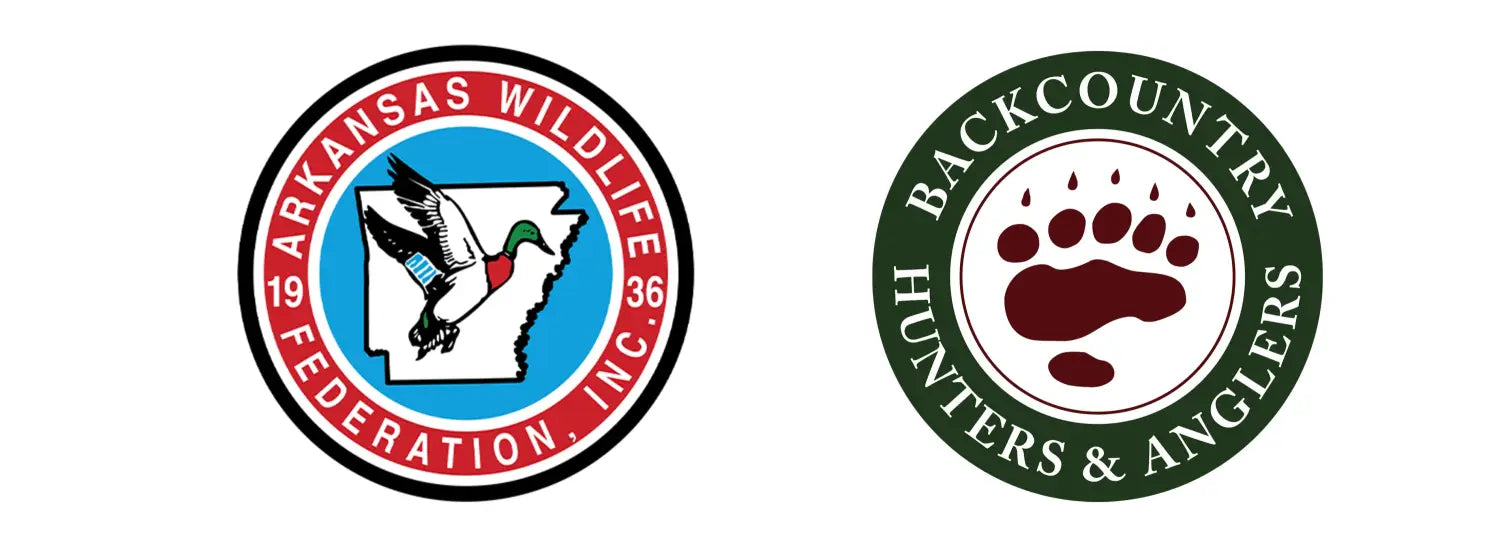
Save the Cache, Save the Future: The Ongoing Fight for Conservation
By Cloud Jacobs -
Imagine, if you will, an Arkansas two hundred years ago. There are very few roads, buildings, or people but the wildlife must have been a wonder to see. Wetlands covered around 9.8 million acres in a state that is only around 34 million acres. The Ivory-billed woodpecker flew through the river bottoms and there wouldn’t be a mud motor heard for another two centuries. In my corner of the state the Quapaw Indians, the state's namesake, hunted and fished these waters for many years before everything started to change.
In 1819 Arkansas became a U.S. Territory and settlers flooded in. Amazed by the plentiful game they started taking full advantage of the bounty nature had provided them. Then, 17 years later in 1836 Arkansas became the 25th state in the Union. People needed food and jobs so they cleared land and drained wetlands for fields. Progress can be a shining star when you take everything into consideration and weigh different options. Unchecked progress can be a hungry beast ready to gobble up anything in its path. The people back then didn’t have access to the information we do today, I’m not mad at them, they were doing what they needed to survive, some of my kin folks among them. Unfortunately, in the Natural State, progress would have a detrimental impact.
According to a report by the NAWM, National Associate of Wetland Managers, by the mid-1980s Arkansas had lost 7,085,000 acres of wetlands. It’s shocking to me to read those numbers. Imagine you’re a duck, you get to your summer home down south and almost three-quarters of it is gone.
I’ll be the first to admit, I am no expert in wetlands conservation. I’m an Arkansas duck hunter, I’ve lived a mile from the White River my entire life. I pick up my empty shell casings after a hunt and I feel like I’ve done my part, but have I really? What else could I be doing to make sure this sport and this bird that has shaped my life continue to thrive here in the natural state? It’s not an easy question to answer and as with everything here in the real world, there is no single key to solve the puzzle. Instead, there are many small parts that contribute to the whole.
 In writing this article I knew very little about wetlands conservation organizations outside of the big two, Ducks Unlimited and Delta Waterfowl. In my own experience growing up in the Arkansas Delta the name Rex Hancock is always mentioned in conversations concerning conservation.
In writing this article I knew very little about wetlands conservation organizations outside of the big two, Ducks Unlimited and Delta Waterfowl. In my own experience growing up in the Arkansas Delta the name Rex Hancock is always mentioned in conversations concerning conservation.
My father remembers Rex as “a small guy who’d hop up on your chest to pull out a tooth” don’t worry, he was a Stuttgart dentist by trade. Rex was instrumental in bringing attention to the polluting of the Bayou Meto headwaters by a pesticide plant nearby, the Vermac Site. However, his real claim to fame was his “Save the Cache” campaign.
Back in the early 70’s the Army Corp of Engineers decided it would be a good idea to channelize the Cache River to prevent field flooding further upstream. Many opponents argued that channelization was the death of a river, at the very least it’s a major detriment to the river's wildlife, and in the case of the Cache would have had a major impact on wintering waterfowl.
By the late seventies, seven miles had been channelized, but surprisingly Rex won. They stopped and duck hunters today enjoy the fruits of his labor. However, nothing is ever won for good.
 What I admire most about Rex Hancock is that he took things into his own hands. He hunted the Cache River bottoms and by damn, he took ownership of the problem as well as the solution. Rex didn’t achieve this victory single-handedly either, he had the support of ordinary Arkansans, various organizations, and politicians. Rex was the lightning rod that got people up and moving.
What I admire most about Rex Hancock is that he took things into his own hands. He hunted the Cache River bottoms and by damn, he took ownership of the problem as well as the solution. Rex didn’t achieve this victory single-handedly either, he had the support of ordinary Arkansans, various organizations, and politicians. Rex was the lightning rod that got people up and moving.
Two organizations I came across in my research that champion conservation in the Natural State are the Arkansas Wildlife Federation, of which Rex Hancock was president of the Grand Prairie Chapter, and the Arkansas Chapter of the Backcountry Hunters and Anglers. I don’t know this for certain but I would imagine Rex would respect the work these two groups take part in.
 The Arkansas Wildlife Federation was established in 1936. Some notable accomplishments are preventing the damming of the Buffalo River, passing the ⅛ cent conservation tax, and reducing clear-cutting Arkansas forests. What I like about this particular organization is that it’s local to the natural state. The Arkansas Wildlife Federation engages with Arkansas lawmakers to make headway in various directions, including wetlands conservation. They work locally for the local people. I like that. It's easier to support an organization that has my particular interests as an Arkansan in mind.
The Arkansas Wildlife Federation was established in 1936. Some notable accomplishments are preventing the damming of the Buffalo River, passing the ⅛ cent conservation tax, and reducing clear-cutting Arkansas forests. What I like about this particular organization is that it’s local to the natural state. The Arkansas Wildlife Federation engages with Arkansas lawmakers to make headway in various directions, including wetlands conservation. They work locally for the local people. I like that. It's easier to support an organization that has my particular interests as an Arkansan in mind.
Additionally, something I find very refreshing about the AWF, and it also follows their mission of transparency, is that they post their yearly financial summaries. If you donate, you can see exactly how your money is being spent.
While The Arkansas Wildlife Federation is more of a political organization, The Arkansas Chapter of the Backcountry Hunters and Anglers strikes me as more of a boots-on-the-ground organization.
In the past few years, the organization has saved public land from being sold to a private organization. The Pine Tree Research station, an 11,000 and some odd acreage area of prime forest was obtained by the University of Arkansas Agricultural Division from the U.S. Forestry Division in 1960. In 2020 they were going to sell 6,300 acres for a cool 17 million to a private buyer. The Arkansas chapter of BHA raised hell, gathered signatures as well as support, and was instrumental in keeping it open to the public. Kudos Arkansas BHA.
They also organize various wildlife-centered events throughout the year, donate money, and assemble different clean-ups statewide.
These two organizations do tremendous work here in the Natural State. If you are interested in donating time, money or both don’t hesitate to look them up.
In closing, I truly believe that the key to wetlands conservation lies with ordinary people, ordinary duck hunters, and ordinary outdoor enthusiasts. In the spirit of Rex Hancock, stay local. Do the research and figure out what needs to be done around your backyard. A small group of people can accomplish great things. Some of the bigger state organizations like I’ve mentioned above are doing amazing work right here in our own state. If you can donate money, great, if you can donate time, that’s even better.
Traversing the woods, fields, and streams will center and humble you. One can also see for oneself what is really worth fighting for, not just for us but for future generations of Americans. Without people who care a great deal for the resource, it will quickly be lost. Work for our wetlands and fight for it if you have to, it’s worth it, to everyone.

1 comment
Awesome read awesome work